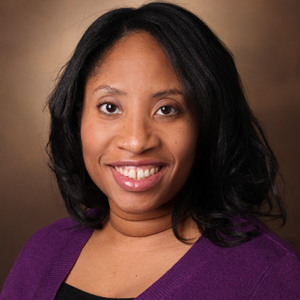Black women have worse birthing outcomes than white women, a disparity that is has been linked to variables ranging from health care access to clinician bias.
Rolanda Lister, M.D., an associate professor of obstetrics and gynecology at Vanderbilt University Medical Center, is working to bridge the gap in pregnancy outcomes. One obstacle she faces is the fact that many in the Black community distrust medical institutions, including those providing obstetric care.
“Black women not only experience higher maternal mortality rates, but also have increased rates of preeclampsia, stillbirths, cesarean complications, and progression to Type 2 diabetes after a gestational diabetes diagnosis,” Lister said. “As we navigate this health crisis, the importance of reestablishing a ‘village’ model of care is becoming increasingly important.”
To improve health knowledge and promote trust in birth workers, Lister and her team are pioneering an educational framework that builds community and institutional partnerships between doulas and obstetric providers. The first pilot experience using the training model was published in the Journal of Racial and Ethnic Health Disparities.
Didactic Training for Doulas
According to Lister, Black women often turn to those they trust – typically family and community members – for support during pregnancy. Integrating specially trained Black doulas into their care could provide a path to improving trust and reducing disparities in maternal health outcomes, she believes.
“Mothers often seek guidance from their doula on topics outside their intended role,” Lister said. “By offering advice rooted in evidence-based medicine to doulas, they can play a vital role in improving birth outcomes for Black people.”
In the pilot study, researchers tested a structured curriculum designed specifically for community-based doulas. The goal of the two-hour training session was to address common pregnancy complications that disproportionately affect Black women.
Early Signs of Success
After the 12 doulas completed the training session, pre- and post-assessment scores revealed that their knowledge about the common complications of pregnancy had increased.
“None of the doulas in our pilot had formal medical training,” Lister said. “This collaborative training revealed an opportunity to acquire knowledge to better support their clients.”
“The inclusion of Black doulas in this trial lays the groundwork for rebuilding trust among the most vulnerable birthing population.”
Lister and her team stressed the importance of educating doulas on signs of postpartum complications as a key step towards reducing maternal mortality. The tactic aligns with prior research showing that birth attendants respond to pregnancy-related complications in a variety of ways based on their experience or level of training in managing complex medical issues.
“The inclusion of Black doulas in this trial lays the groundwork for rebuilding trust among the most vulnerable birthing population,” Lister explained.
Further Validation
The researchers plan to conduct larger studies with more diverse patient populations to confirm the training method is effective for different racial and ethnic groups.
Lister’s ultimate goal is to develop a comprehensive curriculum for community-based doulas that includes education on pregnancy-related complications disproportionately affecting the Black community, empowering their clients with life-saving information.
“By replicating this training model at more institutions, there is an opportunity to reduce the morbidity and mortality among Black women and improve the trust between obstetric providers and the community,” she said.





